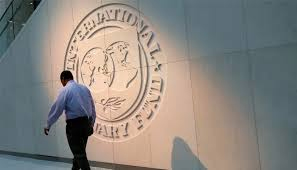PAKISTAN ECONOMY
Pakistan is likely to pass the first IMF review due to its positive steps in tax reform, privatization efforts, and commitment to meeting the IMF’s fiscal and economic conditions, a Loomberg report suggests.
The engagement of government officials at various levels, along with encouraging feedback from the IMF, all point to significant progress in the reform process, which will likely result in the disbursement of the second installment of the loan package. These factors combined have contributed to the success of Pakistan in passing the review.
Having a look at Pakistan’s economy, there are several reasons why Pakistan is likely to pass the first review of its $7 billion loan program with the IMF. The reasons reflect positive progress in the country’s efforts to meet the IMF’s conditions, as well as steps taken to demonstrate economic reform.
Here are the key factors contributing to Pakistan’s success in the review process:
Progress in Revenue Generation
• Tax Reforms: One of the central conditions for Pakistan’s loan program is increasing revenue generation. The government has made notable strides by approving a law to tax agricultural income, which is a significant step considering the large agricultural sector in Pakistan. This signals a more
comprehensive approach to tax reform.
• Tax Targets: Pakistan has also taken concrete steps to meet ambitious tax revenue targets. The government’s commitment to ensuring tax compliance and expanding the tax base, as stated by Finance Minister Muhammad Aurangzeb, is seen as crucial to securing approval from the IMF.
Privatization Efforts
• Sale of State-Owned Assets: Another key development is the government’s attempt to sell a stake in Pakistan International Airlines (PIA). The sale of state-owned enterprises is a condition of the IMF loan, as it helps reduce fiscal burden and promotes market efficiency. This move indicates Pakistan’s effort to adhere to IMF expectations regarding privatization and asset management.
Demonstrating Commitment to Reform
• Prime Minister’s Engagement: Prime Minister Shehbaz Sharif’s engagement with the IMF and his efforts to reassure the lender of Pakistan’s commitment to economic reforms have been important. His discussions with IMF Managing Director Kristalina Georgieva, where he emphasized a plan to boost economic growth after achieving stability, show that Pakistan is taking a proactive approach to implementing long-term reforms.
• Completion of Previous Short-Term Program: Pakistan’s ability to successfully complete a nine-month program last year, which was considered short-term but showed progress, has helped to rebuild trust with the IMF. This track record demonstrates Pakistan’s capability and intent to fulfill loan conditions.
Progress on IMF Conditions
• Commitment to Meeting Fiscal Targets: Pakistan’s commitment to meeting revenue goals for the fiscal year and its plan to cover any shortfalls by expanding the tax net is a strong signal to the IMF that the country is serious about meeting the conditions of the loan agreement. This commitment to fiscal discipline and expansion of the tax base aligns with the IMF’s priorities.
Positive IMF Feedback
• Encouragement from IMF Leadership: The positive feedback from IMF Managing Director Kristalina Georgieva, who has expressed encouragement over Pakistan’s strong commitment and reforms, is also an important factor. The IMF’s approval is often contingent not just on meeting conditions, but on a demonstrated commitment to long-term reforms, and Pakistan’s ongoing efforts appear to meet this criteria.
Investor Confidence
• Sign of Progress in Economic Reforms: The IMF review is being closely monitored by investors, and approval of the first review would signal that Pakistan is making meaningful progress in implementing necessary economic reforms. This investor confidence could help bolster Pakistan’s economic stability and attract more investment.
ER Report

